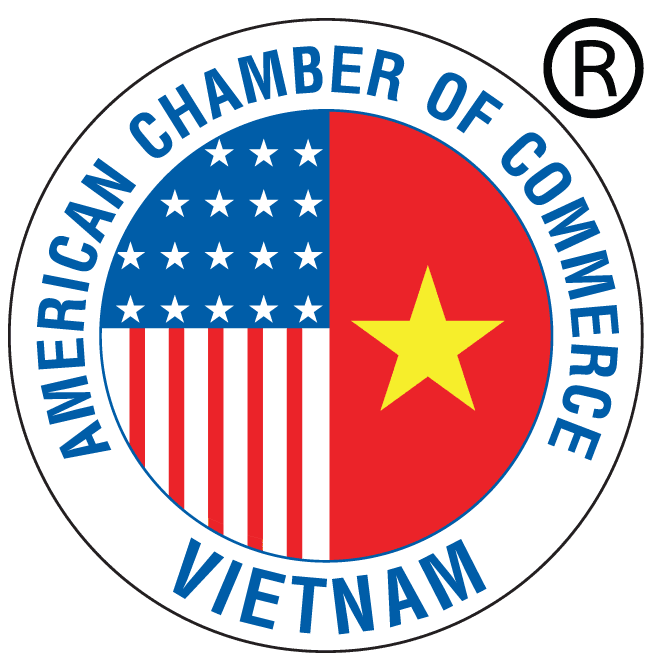AmCham’s objective is to promote trade and investment between Vietnam and the United States, in particular by working to improve business conditions. One of the key activities of AmCham, as provided for by the DECREE OF THE GOVERNMENT Promulgating the Regulations on the Establishment of Foreign Business Associations in Vietnam, Decree No. 08/1998/ND-CP, dated 22 January 1998, is:
” … to represent the Association in putting forth proposals and measures to Vietnamese state managment authorities for the puprose of protecting the lawful rights and business of member businesses and contributing to the creation of a healthy business environment.”
AmCham Position Papers, Proposals to Vietnamese and U.S. Authorities, and Background Information
2006
Update and Background on WTO Implementation (and Apparel Trade) Includes (1) summary and downloads of complete information on the Working Party Report (260 pages), Commitments on Goods (560 pages), Commitments on Services (60 pages); (2) detailed specifics on the U.S.-Vietnam WTO Bilateral Agreement for Agricultural, Industrial, Services, Textiles and Apparel. Note that apparel imports account for nearly 40% of all U.S. imports from Vietnam; (3) Import Monitoring Program for Textiles and Apparel from Vietnam; and (3) regular Update of developments.
2005
| 2005-12-05 | Vietnam Business Forum – AmCham Statement |
| 2005-06-01 | Vietnam Business Forum – AmCham Statement |
| 2005-03-01 | Position Paper: U.S. Businesses Need a Tax Treaty with Vietnam |
2004
| 2004-10-13 | Prime Minister’s Dialogue with Entrepreneurs – AmCham Statement |
2001
| 2001-03-30 | Letter to the President re Bilateral Trade Agreement |
Policy Issues – Asia-Pacific Council of AmChams
Summary of Policy Issues of the Asia-Pacific Council of AmChams
Policy Issues – Asia-Pacific Economic Cooperation (APEC) Forum
Key policy issues for APEC include: support for the WTO Doha Round conclusion by December 2006, regional trade arrangements (RTAs) and free trade agreements (FTAs), and the implementation of the Busan Roadmap (to the Bogor Goals).
APEC’s focus is on three key areas (known as APEC’s ‘Three Pillars”)
• Trade and Investment Liberalisation – the “Busan Roadmap to the Bogor Goals”
• Business Facilitation – the “Bogor Business Agenga”
• Economic and Technical Cooperation
U.S.-ASEAN Enterprise Initiative, Enhanced Partnership, Plan of Action, and TIFA
- U.S.-ASEAN Enterprise Initiative, October 2002
focuses on regional and bilateral trade initiatives that will reinforce global efforts in the WTO Doho Development Round, including: bilateral Trade and Investment Framework Agreements (TIFAs, for example with the Philippines, Indonesia, Thailand), followed by bilateral Free Trade Agreements (for example, with Singapore).U.S.-ASEAN Enhanced Partnership, July 28, 2005
focuses on economic, political and security issues.Plan of Action, July 27, 2006
The foreign ministers of ASEAN and the U.S. Secretary of State signed the framework document for the plan of action to implement the ASEAN-U.S. Enhanced Partnership on 27 July 2006, in Kuala Lumpur, Malaysia. The plan of action serves as a five-year master plan from 2006 to 2011, aimed at pursuing joint actions and measures to enhance cooperation.U.S.-ASEAN Trade and Investment Framework Agreement, August 25, 2006
“The U.S.-ASEAN TIFA signed today reflects our commitment to establishing the architecture that will facilitate an even more vigorous U.S. economic engagement in the ASEAN region,” said Ambassador Schwab. “The TIFA will be a platform to intensify our trade and investment relations with the ASEAN region, which collectively constitutes our fourth largest trading partner and represents one of the most rapidly growing and dynamic economies in the world.”Increased Efforts to Combat High Level Corruption
World leaders are increasingly attacking hgh level corruption by senior government officials, or kleptocracy. The G8 Leaders agreed to fight high level corruption in a joint statement on July 16. President Bush outlined the U.S. stragegy internanationalize efforts against kleptocracy on August 10. The World Bank/IMF meetings in Singapore September 19-20 is expected to develop a coordinated and comprehensive anticorruption strategy. Read more … .
Additional Background Reading
U.S.-Vietnam Bilateral Relations, Statement by Christopher Hill, Assistant Secretary of State for East Asian and Pacific Affairs, U.S. Department of State, Mar 12, 2008.
USTR’s Library of Trade Agreements between Vietnam and the United States
Transformational Diplomacy – Fact Sheet (and link to Secretary of State’s 18 Jan 06 Speech)
“I would define the objective of transformational diplomacy this way: To work with our many partners around the world to build and sustain democratic, well-governed states that will respond to the needs of their people—and conduct themselves responsibly in the international system.”
“Hands-On. Diplomats will not only be analyzing policy and shaping outcomes, but also running programs. They will be helping foreign citizens to promote democracy building, fight corruption, start businesses, improve healthcare, and reform education.”
Rice-Chertoff Joint Vision: Secure Borders and Open Doors in the Information Age
“To decrease the wait time for visa appointments for travelers, and building on best practices at several posts, all American embassies and consulates have now established procedures to expedite the processing of business visas and are working closely with local American Chambers of Commerce in over 100 countries to expedite the visa process for bona fide business travelers.”
Advancing a New Paradigm in Foreign Assistance
“For too long, in the world of foreign aid, many have considered “good intentions” to be “good enough.” The era of sprinkling some money around the world and feeling better about ourselves simply has to end. Our foreign assistance must have a strategic focus.”
“But the dominance and the permanence of such donor-led responses has had the effect of shifting the focus of responsibility away from the host governments to international donors. We’ve often created parallel systems of service delivery that have allowed governments to shirk their responsibility, and shifted citizens’ expectations away from their own governments to the international donors.”
“What we want all our U.S.-based partners to do, is to say: while we are providing fish to eat, let’s also teach people how to fish for themselves.”
Archives
| Summary of Issues and Advocacy, 2010 – 2013 |
| Summary of Issues and Advocacy, 2007 – 2009 |
| Summary of Issues and Advocacy, 2004 – 2006 |
